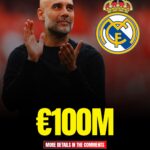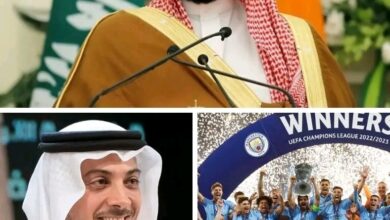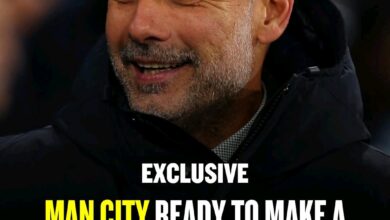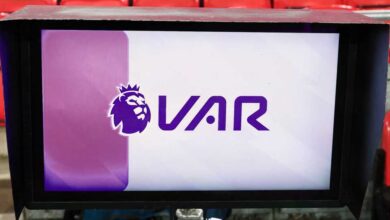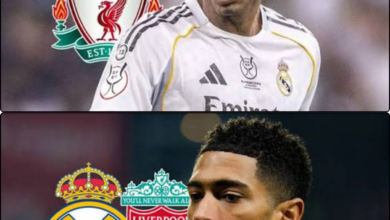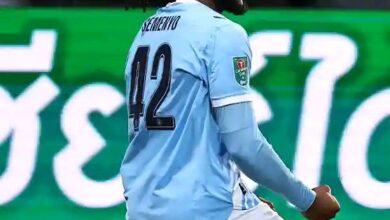Arsenal nearing sensational Rodrygo transfer after double update as £42m ‘agreement’ reached

Arsenal Football Club stands at the precipice of what could be their most transformative summer transfer window in recent memory. Under the astute guidance of Mikel Arteta and the newly appointed sporting director Andrea Berta, the Gunners are orchestrating a calculated revolution that promises to elevate their competitive standing both domestically and in European competition. The convergence of strategic planning, financial prudence, and ambitious targeting has created a perfect storm for what many are calling a sensational rebuilding effort that could reshape the very DNA of this historic North London institution.
The current transfer landscape presents Arsenal with unprecedented opportunities to strengthen their squad across multiple positions while maintaining the delicate balance between immediate impact and long-term sustainability. With the financial year concluding on June 30, the urgency surrounding these potential acquisitions has intensified, creating a compressed timeline that demands decisive action from the club’s hierarchy. This deadline-driven approach has accelerated negotiations across several fronts, with multiple high-profile targets reportedly agreeing to join the Emirates Stadium revolution.
Perhaps the most captivating narrative emerging from Arsenal’s transfer activities centers around the potential acquisition of Real Madrid’s Brazilian sensation, Rodrygo Goes. The 24-year-old winger has found himself increasingly marginalized at the Santiago Bernabéu, a situation that has created an unexpected opportunity for Arsenal to secure one of European football’s most talented attacking players. Rodrygo’s current predicament at Real Madrid serves as a testament to the club’s embarrassment of riches in attacking positions, but also highlights the Brazilian’s desire for regular first-team football that could drive him toward a Premier League adventure.
Recent developments have significantly enhanced Arsenal’s prospects of securing Rodrygo’s signature. The player’s reduced role in Real Madrid’s recent Club World Cup campaign, where he was relegated to bench appearances totaling just 23 minutes across two crucial matches, underscores his growing frustration with his current situation. Even with Kylian Mbappé sidelined through injury, Rodrygo found himself watching from the sidelines as younger talents like Arda Güler and Gonzalo García were given opportunities to shine. This treatment has not gone unnoticed by Arsenal’s scouting network, who view this as the perfect moment to strike.
The financial implications of a potential Rodrygo transfer are substantial, with Real Madrid reportedly valuing their Brazilian asset at approximately £77 million (€90 million). While this represents a significant investment, Arsenal’s strategic approach to the summer transfer window suggests they are prepared to make such a commitment for a player of Rodrygo’s caliber. The 24-year-old’s versatility across the attacking line, combined with his Champions League experience and proven ability to perform at the highest level, makes him an ideal fit for Arteta’s tactical philosophy.
Rodrygo’s potential arrival would address one of Arsenal’s most pressing needs: adding genuine pace and creativity to their wide positions. His ability to operate on either flank, as well as in a central attacking role, provides Arteta with the tactical flexibility that has become increasingly important in modern football. The Brazilian’s technical proficiency, coupled with his understanding of European football’s demands, suggests he could adapt quickly to the Premier League’s unique challenges while providing the kind of game-changing moments that separate good teams from great ones
The goalkeeper position has long been a source of debate and uncertainty for Arsenal supporters, but the club appears to have found their solution in the form of Kepa Arrizabalaga. The Spanish international’s potential move to the Emirates Stadium represents more than just a change of scenery; it symbolizes Arsenal’s commitment to addressing every aspect of their squad with the same level of ambition and strategic thinking that has characterized their recent transfer activities.
Kepa’s journey through European football has been one of remarkable highs and challenging lows, experiences that have shaped him into a more mature and focused goalkeeper. His time at Chelsea, while marked by periods of inconsistency, also showcased his undeniable talent and ability to perform under pressure. The Spanish international’s recent loan spell at Real Madrid provided him with invaluable experience in high-stakes situations, competing at the highest level of club football while learning from some of the world’s best players.
The agreement reportedly reached between Arsenal and Kepa represents a calculated risk that could yield substantial rewards. His technical ability with the ball at his feet aligns perfectly with Arteta’s preference for goalkeepers who can contribute to the team’s build-up play. This modern approach to goalkeeping has become increasingly important in contemporary football, where the ability to distribute accurately and quickly can often be the difference between maintaining possession and surrendering it to the opposition.
Kepa’s potential arrival also addresses the psychological aspect of goalkeeping that has sometimes been overlooked at Arsenal. His experience in high-pressure situations, combined with his demonstrated ability to bounce back from setbacks, could provide the mental fortitude that the position demands. The Spanish international’s Champions League experience and understanding of what it takes to compete at the highest level make him an ideal candidate to help Arsenal achieve their European ambitions
Arsenal’s midfield reconstruction appears to be taking shape with the reported agreements involving Martin Zubimendi and Christian Nørgaard. These two acquisitions represent different aspects of Arteta’s tactical vision, with each player bringing unique qualities that address specific needs within the squad’s midfield structure.
Martin Zubimendi’s potential arrival from Real Sociedad would provide Arsenal with a player who embodies the modern defensive midfielder archetype. The Spanish international’s ability to read the game, combined with his technical proficiency and leadership qualities, makes him an ideal candidate to anchor Arteta’s midfield. Zubimendi’s experience in La Liga, where tactical sophistication and technical ability are paramount, suggests he would adapt seamlessly to the Premier League’s demands while providing the kind of consistency that championship-winning teams require.
The 25-year-old’s playing style aligns perfectly with Arsenal’s current tactical setup, offering protection for the defense while maintaining the ability to contribute to the team’s attacking phases. His passing range and vision would complement the more dynamic elements of Arsenal’s midfield, creating a balanced unit capable of controlling games against various types of opposition. Zubimendi’s international experience with Spain further enhances his appeal, as it demonstrates his ability to perform at the highest level of football.
Christian Nørgaard’s potential acquisition from Brentford represents a different but equally important addition to Arsenal’s midfield options. The Danish international’s Premier League experience cannot be understated, as his understanding of the league’s physical and tactical demands would allow him to make an immediate impact. Nørgaard’s versatility and work rate have made him a crucial component of Brentford’s success, qualities that would translate seamlessly to Arsenal’s more ambitious objectives.
The combination of Zubimendi and Nørgaard would provide Arteta with midfield options that cover the entire spectrum of what modern football demands. From defensive solidity to creative distribution, from physical presence to tactical intelligence, these two players would give Arsenal the depth and quality necessary to compete across multiple competitions throughout a demanding season.
The reported interest in Valencia’s Cristhian Mosquera highlights Arsenal’s commitment to addressing their defensive needs with the same level of ambition that characterizes their other transfer activities. The young Spanish defender represents the kind of long-term investment that successful clubs make, identifying talent before it reaches its peak value while securing players who can contribute immediately
Mosquera’s development at Valencia has been closely monitored by Arsenal’s scouting network, with his combination of pace, technical ability, and tactical awareness marking him as a player with significant potential. His experience in La Liga, despite his relative youth, provides him with a foundation of technical and tactical knowledge that would serve him well in the Premier League’s more physical environment.
The potential acquisition of Mosquera also reflects Arsenal’s strategic approach to squad building, where immediate needs are balanced against future requirements. His ability to operate in multiple defensive positions provides Arteta with the tactical flexibility that has become increasingly important in modern football, where players must be capable of adapting to different systems and requirements throughout a season.
Arsenal’s search for striking reinforcements has reportedly focused on two distinct but equally intriguing options: Viktor Gyökeres and Benjamin Šeško. These potential acquisitions represent different approaches to solving Arsenal’s need for goalscoring threat, with each player offering unique qualities that could enhance the team’s attacking output.
Viktor Gyökeres has emerged as one of European football’s most prolific goalscorers, with his performances in Portugal’s Primeira Liga catching the attention of clubs across the continent. The Swedish international’s physicality and finishing ability make him an ideal candidate for the Premier League’s demands, while his work rate and pressing intensity align with Arteta’s tactical preferences. Gyökeres’ proven ability to score goals consistently at a high level makes him an attractive option for a club seeking to bridge the gap between potential and achievement.
Benjamin Šeško’s profile represents a different but equally compelling option for Arsenal’s striking needs. The Slovenian international’s youth and potential make him an investment in the club’s future, while his physical attributes and technical ability suggest he could make an immediate impact. Šeško’s experience in European competition, combined with his demonstrated ability to perform against high-level opposition, makes him an intriguing option for a club with Champions League ambitions.
The approaching June 30 deadline for the current financial year adds an element of urgency to Arsenal’s transfer activities, but it also demonstrates the club’s sophisticated approach to financial management. The reported expectation that the club’s spending will not exceed £100 million despite potentially signing four players highlights the strategic nature of their approach, balancing ambition with fiscal responsibility.
This financial constraint has not limited Arsenal’s ambitions but has instead forced them to be more creative and strategic in their approach to the transfer market. The focus on players with specific skill sets that address clear needs within the squad demonstrates a level of planning and analysis that bodes well for the success of these potential acquisitions.
Mikel Arteta’s tactical philosophy has been the driving force behind Arsenal’s transfer strategy, with each potential acquisition fitting into a broader vision of how the team should play. The emphasis on technical ability, tactical intelligence, and versatility reflects a modern approach to squad building that prioritizes adaptability and multi-functionality.
The potential arrivals of players like Rodrygo, Kepa, Zubimendi, Nørgaard, and Mosquera would provide Arteta with the tools necessary to implement his tactical vision across multiple competitions. The depth and quality these players would bring to the squad would allow for rotation without significant drops in performance levels, a crucial factor in competing successfully across domestic and European competitions.
Arsenal’s transfer activities are taking place within a highly competitive market, where multiple clubs are vying for the same targets. The club’s ability to reportedly secure agreements with multiple players simultaneously demonstrates their improved standing in the transfer market and their ability to convince top-level players of their project’s merit.
The competition for players like Rodrygo is particularly intense, with several European giants reportedly interested in his signature. Arsenal’s ability to position themselves as serious contenders for such high-profile targets represents a significant shift in the club’s transfer market status and reflects the progress made under Arteta’s leadership.
Arsenal’s summer transfer activities represent more than just player acquisitions; they symbolize a club’s determination to return to the highest levels of domestic and European competition. The strategic approach to identifying targets, the financial planning required to execute multiple signings, and the tactical vision that unifies these acquisitions all point to a club operating with clear direction and ambitious goals.
The potential signings of Rodrygo, Kepa, Zubimendi, Nørgaard, and Mosquera would provide Arsenal with significantly enhanced squad depth and quality across multiple positions. These acquisitions, if completed, would give Arteta the tools necessary to compete consistently at the highest level while maintaining the tactical flexibility that modern football demands.
The next seven days will be crucial in determining whether Arsenal can convert their reported agreements into completed transfers. The approaching financial year deadline adds urgency to the proceedings, but it also provides clarity about the timeline within which these crucial decisions must be made.
As Arsenal stands on the brink of what could be a transformative summer, the club’s supporters have reason for optimism. The strategic approach to the transfer market, combined with the quality of the targeted players, suggests that the Gunners are serious about their ambitions to return to the pinnacle of English and European football. The potential revolution at the Emirates Stadium could provide the foundation for sustained success in the seasons to come, marking this summer as a pivotal moment in the club’s modern history.




